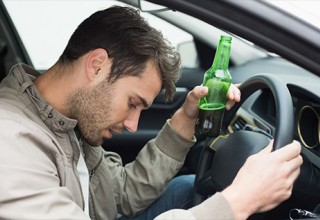Syracuse DWI Attorney Discusses How the Alex Wubbels Situation Applies to NY Law

SYRACUSE, N.Y., September 19, 2017 (Newswire.com) - According to reports, Wubbel's lawyer Karra Portler told the Salt Lake Tribune "implied consent has not been the law in Utah since 2007." The U.S. Supreme Court ruled in 2016 that the Constitution permits warrantless breath tests in drunken-driving arrests, but not warrantless blood tests.” Although that statement is true, it is not entirely correct. According to Syracuse DWI Lawyer Scott Brenneck of Team Green Lawyers, there are several specific things to consider as it pertains to similar cases in New York.
What the Supreme Court stated was: “And applying this standard, we conclude that motorists cannot be deemed to have consented to submit to a blood test on pain of committing a criminal offense,” (Birchfield v. North Dakota, 579 U.S. _____ 2016). The significant difference here in New York is that the penalties for refusing the chemical test are largely civil in nature and do not create a separate criminal offense with additional criminal penalties. In Birchfield, the Supreme Court went on to say “Our prior opinions have referred approvingly to the general concept of implied-consent laws that impose civil penalties and evidentiary consequences on motorists who refuse to comply. See, e.g., McNeely, supra, at ___ (plurality opinion) (slip op., at 18); Neville, supra, at 560. Petitioners do not question the constitutionality of those laws, and nothing we say here should be read to cast doubt on them” (Id).
Given that what the investigating officer was trying to do would be legal in New York, would Alex Wubbels have been legally permitted to draw the patient’s blood at the officer’s request? Yes. New York has an implied consent law which is New York State Vehicle and Traffic Law section 1194 (2):
Chemical tests. (a) When authorized. Any person who operates a motor vehicle in this state shall be deemed to have given consent to a chemical test of one or more of the following: breath, blood, urine, or saliva, for determining the alcoholic and/or drug content of the blood provided that such test is administered by or at the direction of a police officer with respect to a chemical test of breath, urine or saliva or, with respect to a chemical test of blood, at the direction of a police officer:
Should the investigating officer wish to conduct a blood draw either because the suspect in unconscious or believed to be under the influence of something other than alcohol, New York has very specific rules on who may draw the blood. Both the New York State Vehicle and Traffic Law and the New York State Public Health Law provide the guidelines for a proper blood draw. According to the New York State Vehicle and Traffic Law section 1194 (4)(a)(1):
Testing procedures. (a) Persons authorized to withdraw blood; immunity; testimony. (1) At the request of a police officer, the following persons may withdraw blood for determining the alcoholic or drug content therein: (i) a physician, a registered professional nurse, a registered physician assistant, a certified nurse practitioner, or an advanced emergency medical technician as certified by the department of health; or (ii) under the supervision and at the direction of a physician, registered physician assistant or certified nurse practitioner acting within his or her lawful scope of practice, or upon the express consent of the person eighteen years of age or older from whom such blood is to be withdrawn: a clinical laboratory technician or clinical laboratory technologist licensed pursuant to article one hundred sixty-five of the education law; a phlebotomist; or a medical laboratory technician or medical technologist employed by a clinical laboratory approved under title five of article five of the public health law. This limitation shall not apply to the taking of a urine, saliva or breath specimen.
This unfortunate situation for Alex Wubbels highlights the intense pressure and invasive methods that can be utilized in motor vehicle accidents or DWI investigations. This case has raised awareness of the laws that impact many lives every day, yet most know nothing about. This case also shows the significant differences in the laws from state to state. Anyone facing a situation where they have questions about the criminal procedure or the tactics used by law enforcement is encouraged to contact a Syracuse DWI lawyer at Team Green Lawyers at (315) 424-8326.
Source: Team Green Lawyers



